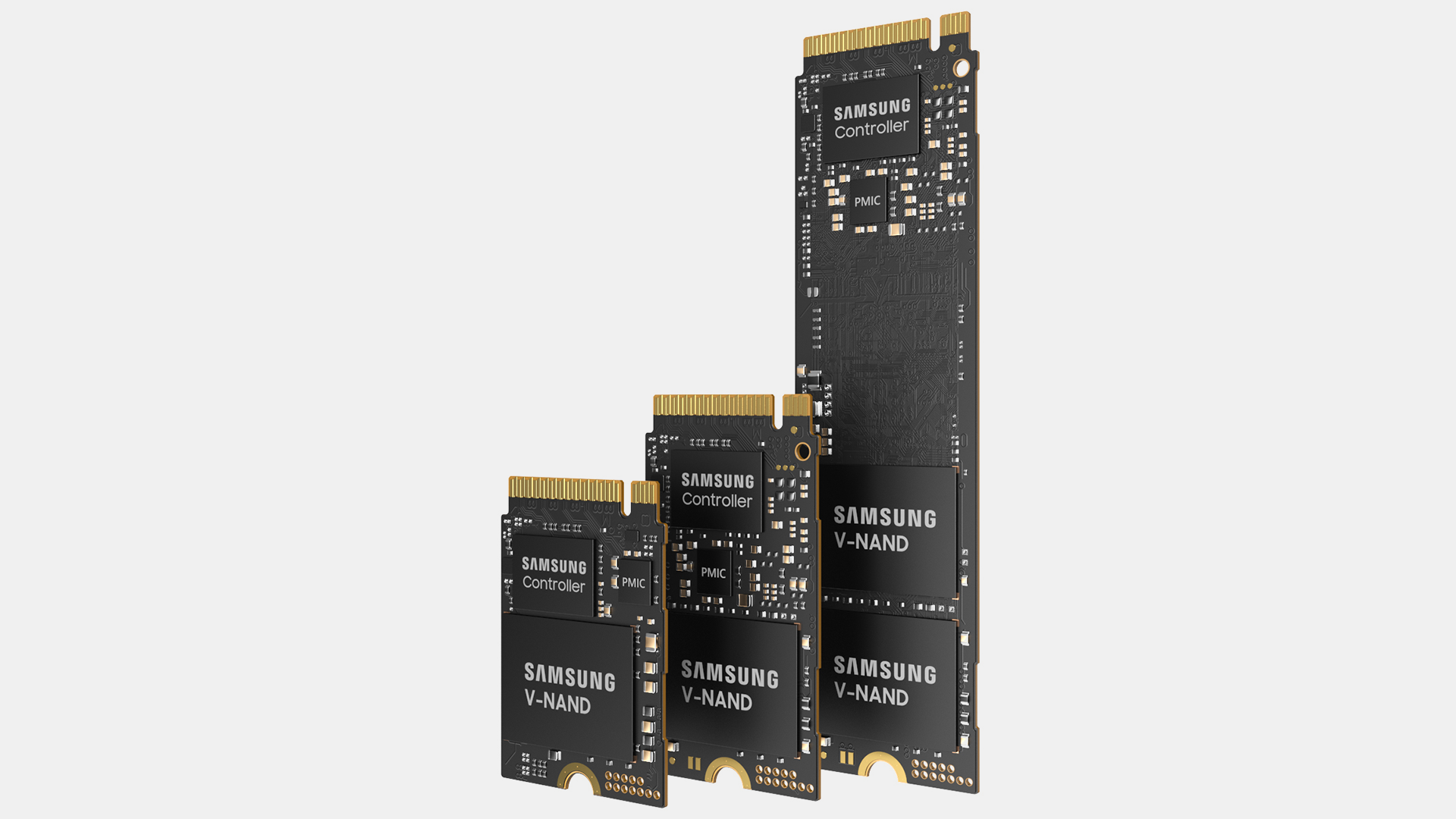
Samsung Launches First SSDs Based on 5nm Controller
Samsung on Thursday introduced its new PM9C1a solid-state drive that uses a controller built using a 5 nanometer-class process technology. The innovative production node allowed Samsung to substantially cut power consumption of the SSD controller and therefore reduce power consumption of the whole drive. The PM9C1a family is aimed primarily at mainstream and performance-mainstream notebooks.
From performance point of view, Samsung’s PM9C1a offer an up to 6 GB/s sequential read speed as well as an up to 5.60 GB/s sequential write speed, which looks quite good for a mainstream drive with a PCIe 4.0 x4 interface. Meanwhile, they provide up to 900 thousand and 1 million of random read and write IOPS (respectively), which is in line with some of the best SSDs available today. The storage devices will be available in 256GB, 512GB and 1TB configurations as well as in M.2-2230, M.2-2242, and M.2-2280 form-factors to satisfy needs of different laptop designs.
The 5nm-based controller is one of the most interesting features of the new PM9C1a drives. Samsung’s new controller is made using one of the company’s 5nm-class nodes (we presume this is SF5 aka 5LPP, though we are speculating) is said to be considerably more power efficient than its predecessors and competitors made using thicker process technologies. In fact, the majority of the latest SSD controllers are implemented using a 12nm-class manufacturing technology, so usage of a 5nm-class node seems to be quite an aggressive move to reduce power consumption. The company itself says that the new PM9C1a drive provides ‘up to 70% more power efficiency per watt’ than its ancestor PM9B1 and uses approximately 10% less power in idle mode.
Samsung yet has to disclose all of the specifications of the controller aimed at DRAM-less SSDs, though we expect it to be sophisticated enough to handle the latest types of the company’s V-NAND memory (probably in both 3D TLC and 3D QLC variants) and support sophisticated signal processing, error correcting and encryption technologies. In particular, the chip supports the Device Identifier Composition Engine (DICE (opens in new tab)) root of trust security standard designed to prevent firmware tampering as well as various attacks. DICE support is a particular benefit for PC OEMs, the target market for Samsung’s PM9C1a.
“Our new PM9C1a SSD will deliver a robust combination of superior performance, greater power efficiency and increased security, which are the qualities that matter most to PC users,” said Yong Ho Song, executive vice president of memory solution product & development at Samsung Electronics in a statement. “We are committed to creating storage that satisfies the diverse and changing market requirements, as we continue to advance innovation in the PC SSD space.”

